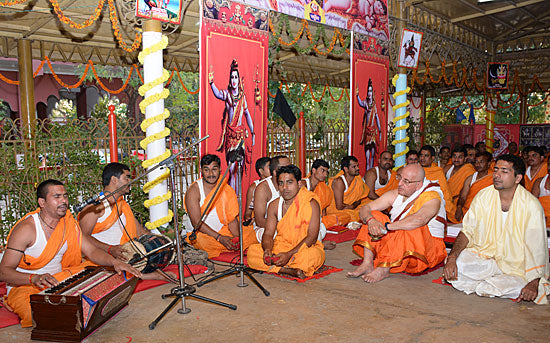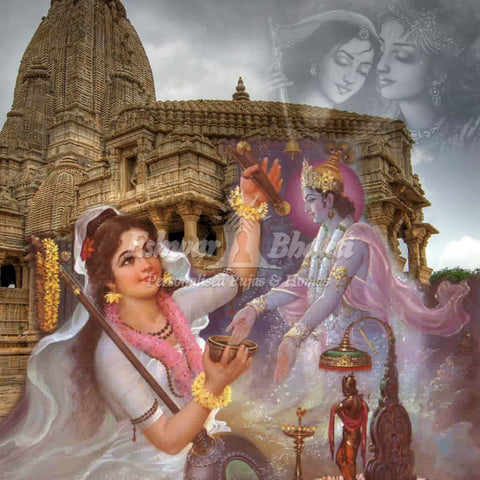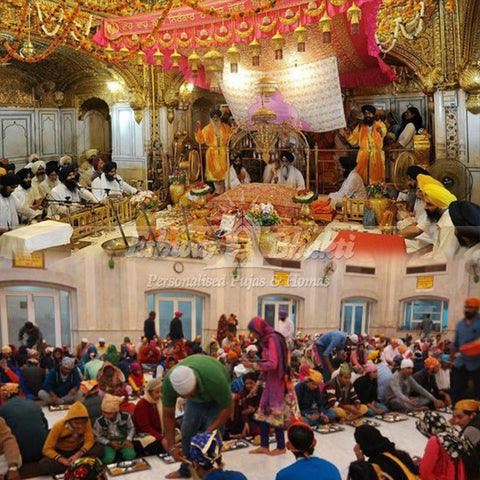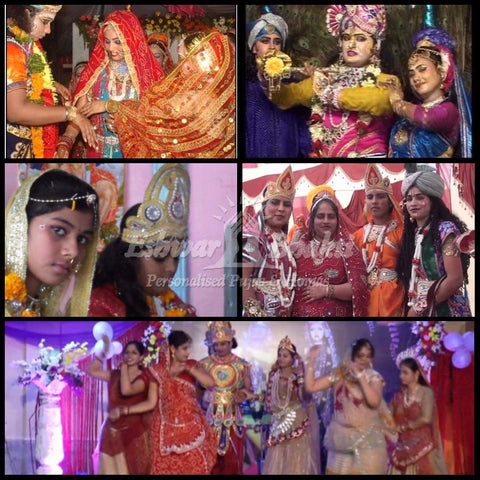Why do we sing Bhajans?
Bhajans are devotional songs that show our respect and reverence to the Gods and Goddesses. In Hinduism, Bhajans play an essential role. Most people sing Bhajans during their prayers. We can sing them from our houses, temples, riverbanks, open places, and other serene places. We can sing Bhajans alone or also with a group of people.
Since the ancient Vedic period, people have been singing Bhajans to worship Gods in the temples. Sama Veda contains hymns and prayers. It is from where the Bhajans might have originated. Some beliefs state the Bhajans came from Nada Brahama. Nada refers to blissful sounds in the ancient days.

Most Bhajans contain praise of God and have stories from ancient scriptures. They also have teachings from sages and saints.
There are different art schools in Hinduism like Shilalim and Krishashashva. They focus on storytelling and other Vedic rituals. Their recitations are similar to the recitation of Bhajans. Some genres of Bhajan are Nirgyni, Mudhurabhakti, and Sampradaya.
With the growth of Bhakti's movement in India, there came a radical change in the perspective of reciting Bhajans. Earlier, people could only recite Bhajans from temples. However, in the 15th century, with the Bhakti movement, it became much more common. Great religious scholars like Tulasi Das, Meera Bhai, Guru Nanak, Soor Das, and many others played a crucial role in the movement. They helped in spreading religious beliefs in local languages. It might be because of that nowadays Bhajans are present in different regional languages as well. For instance, they are available in Tamil, Hindi, Marathi, and other Indian languages also.
Bhajan comes from the Sanskrit word, Bhajanam, which means reverence. The root word of Bhajan is Bhaj, which means "to belong." Throughout the years, Bhajans have become an integral part of our traditions and culture. Apart from Hinduism, Jainism and Sikhism also conduct Bhajans.
Playing pieces of musical equipment like Tabla, Harmonium, and Dholak also accompany Bhajans. Unlike Kirtan, which is similar to Bhajans, there are no special rules or structure for singing Bhajans. When it comes to the recitation of Bhajans, no special musical training is necessary. Another significant factor to note is that different sects like Vaishnavism and Shaivism have their peculiar reciting Bhajans.
However, in the present decade, not many people are aware of the benefits and the significance of reciting Bhajans and Kirtans. With the fast pacing of life, many people fail to find time for their prayers. Most kids, nowadays, are also unaware of the need to sing Bhajans. The singing of Bhajans has a plethora of benefits. They have religious, spiritual, and aid in improving our physical, psychological, and emotional health.
Significance of singing Bhajans in Hinduism: Bhajans have numerous significances in our lives. People started to practice them from ancient days due to the same reasons. They can help us in various ways. When we sing or hear Bhajans, we can imbibe positive vitalities. They can aid us in removing negative energies within us and our surroundings. Apart from that, there are other religious and scientific significances associated with singing Bhajans in Hinduism. We will look into some of them here:
1. Bhajans can provide us with a therapeutic effect. They can improve our emotional bond and maintain us emotionally stable.
2. When we are undergoing stress, anxiety, or other psychological issues, we can listen or sing Bhajans. When we do so, it helps in calming and soothing our minds. Both the singer and the listener can gain benefits from Bhajans. They can aid us in focusing on our devotion.
3. When we sing Bhajans, they are rhythmic. Their rhythms can bring harmony to our lives. Apart from that, their frequencies can also assist in channelizing the energy in our bodies. They are also highly beneficial in removing blockages and maintaining balance in our Chakras.
4. When we sing or chant Bhajans while meditating, they can improve our concentration and focus. It is also an excellent way to connect with our soul. We can enhance our connection with the Supreme Being or the Ultimate Consciousness as well.
5. Bhajans can improve the flow of Prana energy through our body.
6. When we are singing Bhajans, we are singing about the good qualities of the deities. Through this, we can also imbibe those attributes into our lives.
7. Most times, we sing Bhajans with a group of people. It helps in improving our connection and friendship with these people. It is a way of enhancing familial and other friendly relations.
8. When we sing Bhajans, it can aid in the release of dopamine. It is also known as the feel-good hormone.
9. Bhajans can improve our analytical skills and make us more attentive. It can increase our awareness, as well.
10. Bhajans can act as anti-depressants and relieve anxiety. They are helpful in providing positive vibrations and thoughts.
When we sing Bhajans as part of our prayers, they can play a significant role in invoking us to the religious and spiritual realm. Apart from that, they have a plethora of other health-based benefits as well. It is essential to include Bhajans as part of rituals to enhance positivity in our lives.





Comments
well said ,simple and inspiring .
thank you for this great explination .JAI BHAGWAN